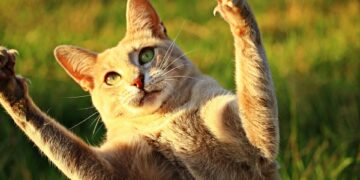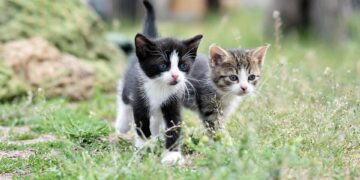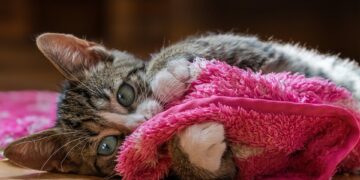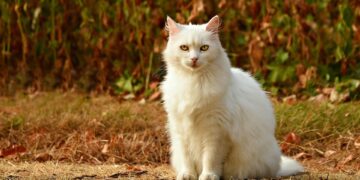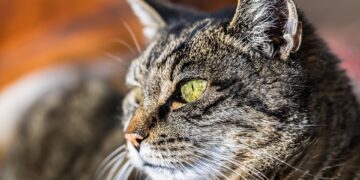Cat Slimming and Strengthening: The Ultimate Guide to Weight Loss and Joint Health
As cat owners, we all want our furry friends to be happy and healthy. One important aspect of their well-being is maintaining a healthy weight and strong joints. Just like humans, cats can also struggle with weight issues and joint problems if not properly taken care of. In this comprehensive guide, we will discuss the best ways to help your cat slim down and improve their joint health.
Why is Cat Weight Management Important?
Obesity in cats can lead to a variety of health problems, including diabetes, arthritis, heart disease, and respiratory issues. Overweight cats also have a shorter lifespan and are at a higher risk for developing certain cancers. Keeping your cat at a healthy weight is crucial for their overall well-being and longevity.
Signs of Obesity in Cats
It’s important to be able to recognize the signs of obesity in your cat so you can take action before it becomes a serious problem. Some common signs of obesity in cats include:
- Difficulty feeling their ribs
- Low energy levels
- Difficulty grooming themselves
- Excessive eating
How to Help Your Cat Slim Down
There are several ways you can help your cat slim down and reach a healthy weight. Here are some tips to help you get started:
1. Monitor Their Diet
Monitor your cat’s food intake and make sure they are not overeating. Consider feeding them smaller, more frequent meals throughout the day to help control their portion sizes.
2. Provide Regular Exercise
Encourage your cat to be more active by providing them with toys and interactive play sessions. Cats love to chase and pounce, so engage them in activities that mimic their natural hunting instincts.
3. Consult with Your Veterinarian
If you’re unsure about how to help your cat slim down, consult with your veterinarian. They can provide you with a personalized weight management plan tailored to your cat’s specific needs.
Improving Joint Health in Cats
In addition to weight management, it’s important to also focus on improving your cat’s joint health. Strong joints are essential for your cat’s mobility and overall quality of life. Here are some tips to help strengthen your cat’s joints:
1. Provide Joint Supplements
Consider giving your cat joint supplements that contain glucosamine and chondroitin. These supplements can help support healthy joint function and reduce inflammation.
2. Maintain a Healthy Weight
As mentioned earlier, maintaining a healthy weight is crucial for your cat’s joint health. Excess weight puts added strain on their joints, leading to increased wear and tear over time.
3. Encourage Low-Impact Exercise
Low-impact exercises like gentle play sessions and stretching can help improve your cat’s joint flexibility and strength. Avoid high-impact activities that could potentially cause joint injuries.
Common Questions About Cat Slimming and Strengthening
1. Can’t I Just Put My Cat on a Diet?
While putting your cat on a diet may help them lose weight, it’s important to do so under the guidance of a veterinarian. Rapid weight loss can be harmful to your cat’s health and may lead to other issues like muscle loss and nutritional deficiencies.
2. How Can I Tell If My Cat Has Joint Pain?
Some common signs of joint pain in cats include limping, difficulty jumping, and reluctance to move. If you suspect your cat is experiencing joint pain, consult with your veterinarian for a proper diagnosis and treatment plan.
3. Are There Specific Breeds More Prone to Joint Problems?
While joint problems can occur in any breed of cat, certain breeds are more prone to developing issues like arthritis. Breeds like Maine Coons, Persians, and Siamese cats are known to have a higher risk of joint problems due to their genetics.
Conclusion
By following the tips outlined in this guide, you can help your cat slim down and improve their joint health. Remember to monitor their diet, provide regular exercise, and consult with your veterinarian for personalized advice. With proper care and attention, your cat can enjoy a long and healthy life free from weight and joint issues.
Remember, a healthy cat is a happy cat!

